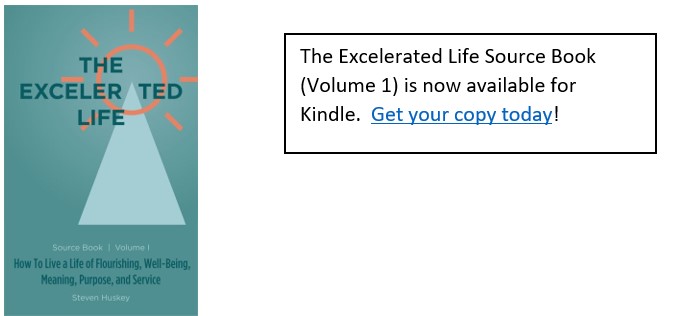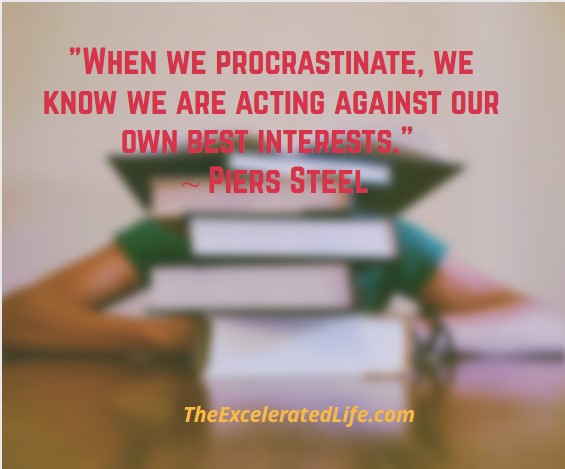The “Procrastination Equation” [Steel] shows us that motivation is the product of expectancy – expecting a good outcome and value – doing a task that is important to us divided by the product of impulsiveness – flitting from task to task and delay – putting off the task. The more you can increase the first two and decrease the second two, the higher your motivation.
Title Photo by Andrea Piacquadio
Late Bloomer?
I used to describe myself as a “late bloomer”. Here are some of the reasons I did so. I dropped out of college when I was nineteen. I eventually went back to school and earned an Associate’s Degree at 29. Then, in my mid-thirties, I finally completed the bachelor’s degree that I had started years before.
From the time I was around 12 years old, I longed to play the guitar. In fact, I wanted to be the next Bob Dylan. But I had 3 guitars before I learned to play, mainly because I wasn’t interested in practicing.
I also married rather late (on my 29th birthday), but that was mainly waiting for the right person, and had nothing to do with procrastination!
There are plenty of other things I procrastinated on, just as there were many reasons for these delays. I used to think I needed to do things perfectly (perhaps because I was a firstborn, or, more likely, I had a fixed mindset) and, therefore, if I couldn’t do something perfectly, I wouldn’t try it at all. Or I felt like I ought to know how to do things the first time, without having to learn by making mistakes (again, firstborn or fixed mindset).
Fortunately, over time I recognized that I procrastinated and I eventually overcame the biggest part of that tendency. If I had regrets, one would be that I didn’t learn about the Procrastination Equation earlier in my life.
The Procrastination Equation
The procrastination equation was “inspired by the common elements that determine when we procrastinate”. [Steel] It goes like this: expectancy, value, impulsiveness, delay = motivation. Or to put it in the form of the equation: motivation = expectancy X value / impulsiveness X delay. [Steel] As with any equation, the higher the numerator (top two elements) and the lower the denominator (bottom two), the more motivation you’ll have. Your job then is to do what you can to increase expectancy and value and decrease impulsiveness and delay. Let’s look at each component.

Expectancy. Do you expect a successful outcome? Do you feel confident you can do what you’re setting out to do? If your expectancy is high, you’re less likely to procrastinate.
Value. Is the job or activity you want to do valuable to you? Is it meaningful? If you value it highly, you’re more motivated. If you don’t, you’re more likely to put it off.
Impulsiveness. According to Piers Steel, impulsiveness is the main ingredient for chronic procrastination. Impulsiveness is the tendency to jump from task to task, from one shiny object to the next, looking for immediate gratification. This is not conducive to pursuing meaningful long-term objectives.
Delay. Delay pertains to deadlines. How far in the future does the project, task, or job have to be completed? The longer the delay, the greater your likelihood of putting it off. Today, we want to focus on delay. So, let’s not wait; let’s look at it now.
Delay
Having a deadline far in the future – one month, six months, a year, or longer – can tempt us to put off an important task. But there are other reasons, as well. For example, we have more to do than we can get done. Sometimes, we don’t always know or choose our “first things”. We think we can do more than we actually can. Or we think we have more time than we actually do.
More To Do Than We Can Get Done
We’ve talked about this over and over (see here, or here, or here, and here.) You can’t do everything, even the important stuff. You have to prioritize and choose what’s important now.
Choosing Our “First Things”
“Things which matter most must never be at the mercy of things which matter least.” ~ Johann Wolfgang von Goethe
Prioritizing can be difficult and so we don’t. Prioritizing means choosing some things over others and that means acknowledging that there are some things we can’t do. (See the next two sections.)
To help you choose your most important, or first things, decide who you are. One way is to revisit Stephen Covey’s “roles and goals”. Identifying the various roles you play, Covey’s “the natural ecology necessary to effective living” [Covey], ensures you don’t focus so strongly on one role that you lose touch with other parts of your life.
Decide who you are – or who you want to become – in all the areas of your life. How will you show up in these various roles? Make those your first things
We Think We Can Do More Than We Can
The concept of capabilities from How Will You Measure Your Life? states that what we are capable of doing is based on three factors: resources, processes, and priorities. [Christensen]
Resources are what we use to do it (energy, money, time, other people). Processes are how we do it. And priorities are why we do it.
However, we are not always good judges of our resources or our processes. We consistently misjudge how long it will take to do a task. And we rarely examine how we do a specific task, especially one we do repetitively. (“I’ve/We’ve always done it this way.”) When we don’t make the effort to analyze our performance, we are not reliable judges of how much we can do.

We Think We Have More Time Than We Do
This fallacy is directly related to our resources and the fact that we don’t like to think of our own demise. We have about 4000 weeks on average; some have less, and some have a bit more.
Thinking about this, and based on something I read (the “Death Date” clock) in How To Begin by Michael Bungay Stanier, I took an assessment that showed I could live to age 91. Of course, there are no guarantees, but even 21 years is a finite amount of time. I’m not going to live forever. Neither are you. It’s time to get busy and do the thing or things we came here to do.
Choosing The Right Thing
“Wanting everything is almost the same as wanting nothing.” ~ Joshua Becker
But what is your “right thing”? We’ve discussed in great detail the fact that we can’t do it all . . . even the important things. So how do we choose what to do?
We can start by asking “what truly matters” and taking the time to think about the answer. “The key is to get beyond simply identifying the categories or topics that matter to you and to think through what is going well, what could go better, and why.” [Ryan]
It’s also important to get clear on what we’re never going to do and to be at peace with that. [It’s] “clear that the core challenge of managing our limited time isn’t about how to get everything done – that’s never going to happen – but how to decide most wisely what not to do, and how to feel at peace for not doing it.” [Burkeman]
Don’t Delay
Remember, Expectancy X Value / Impulsiveness X Delay = Motivation. So it’s important that we don’t delay.
Choose to do those things that you value and that you are capable of doing. Ask “What truly matters to me?”, then stretch the comfort zone a little so your capabilities grow.
Once you decide, don’t delay. Set a deadline. Prioritize. Realize you have limited resources of time and energy. Remember you have a literal deadline. Don’t delay. Do it now. That is embracing your Excelerated Life™!
What is your right thing? What truly matters to you?
How do you make that a priority?
Share your experience by leaving a comment below.
Excelerated Accomplishment™ — achieving meaningful objectives — is one step in creating your Excelerated Life™, a life of flourishing and well-being, and a life of meaning, purpose, and service.
Read more about the Excelerated Life™.
Resources:
Burkeman, Oliver. Four Thousand Weeks: Time Management For Mortals. New York: Farrar, Straus and Giroux, 2021.
Christensen, Clayton M. How Will You Measure Your Life? New York: HarperCollins Publishers Inc., 2012.
Covey, Stephen R. The Seven Habits Of Highly Effective People. New York: Simon & Schuster, 1989.
Ryan, James E. Wait, What? And Life’s Other Essential Questions. New York: HarperCollins Publishers Inc., 2017.
Stanier, Michael Bungay. How To Begin. Macmillan Publishers, 2022.
Steel, PhD, Piers. The Procrastination Equation: How To Stop Putting Things Off And Start Getting Things Done. New York: HarperCollins Publishers, 2011.


